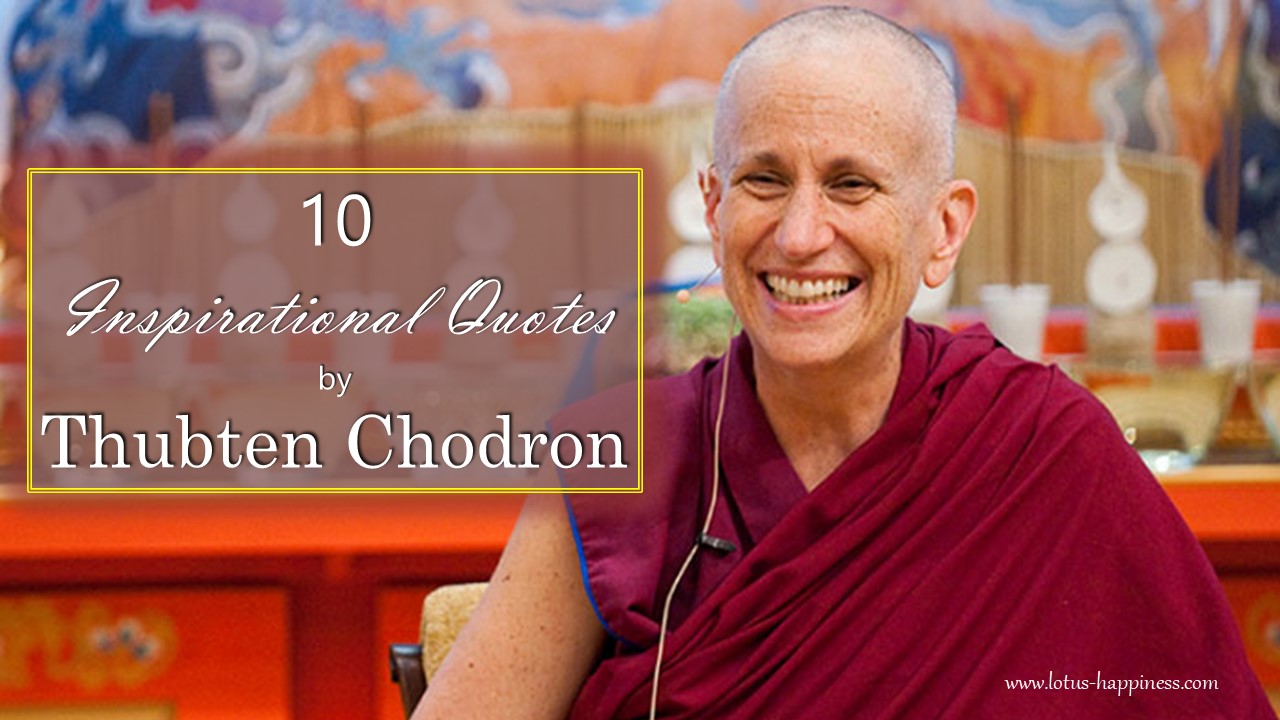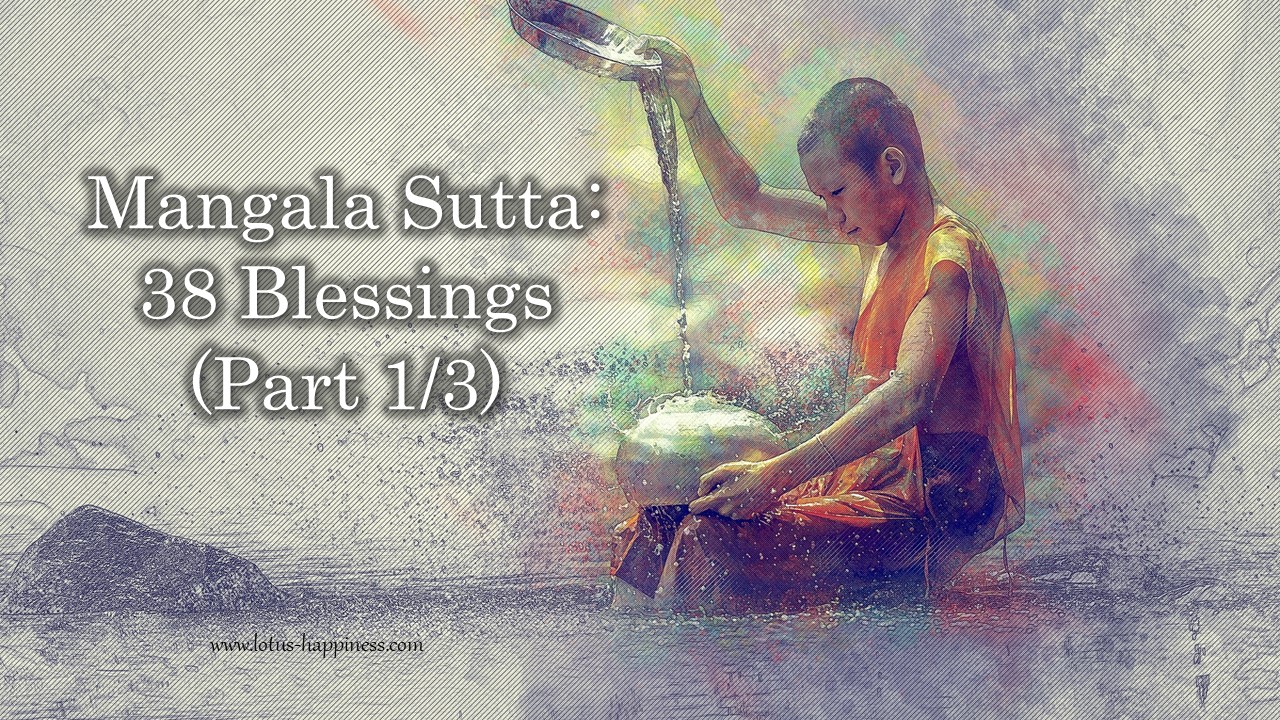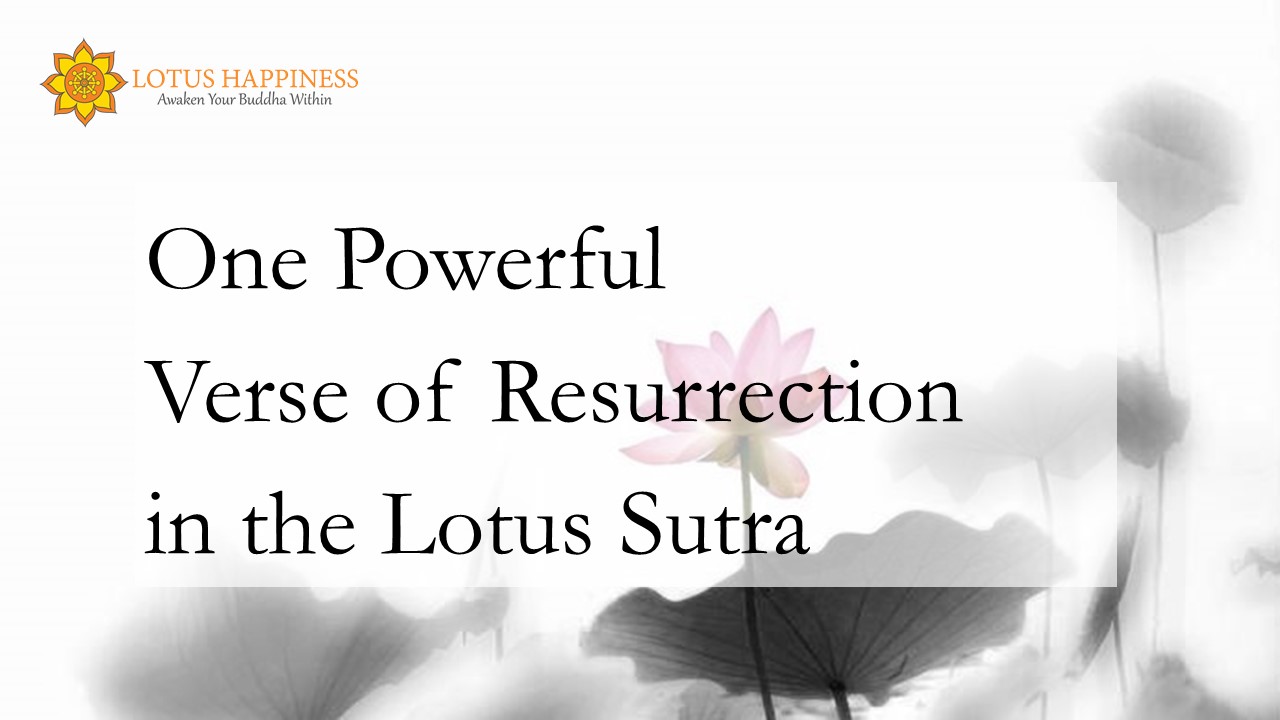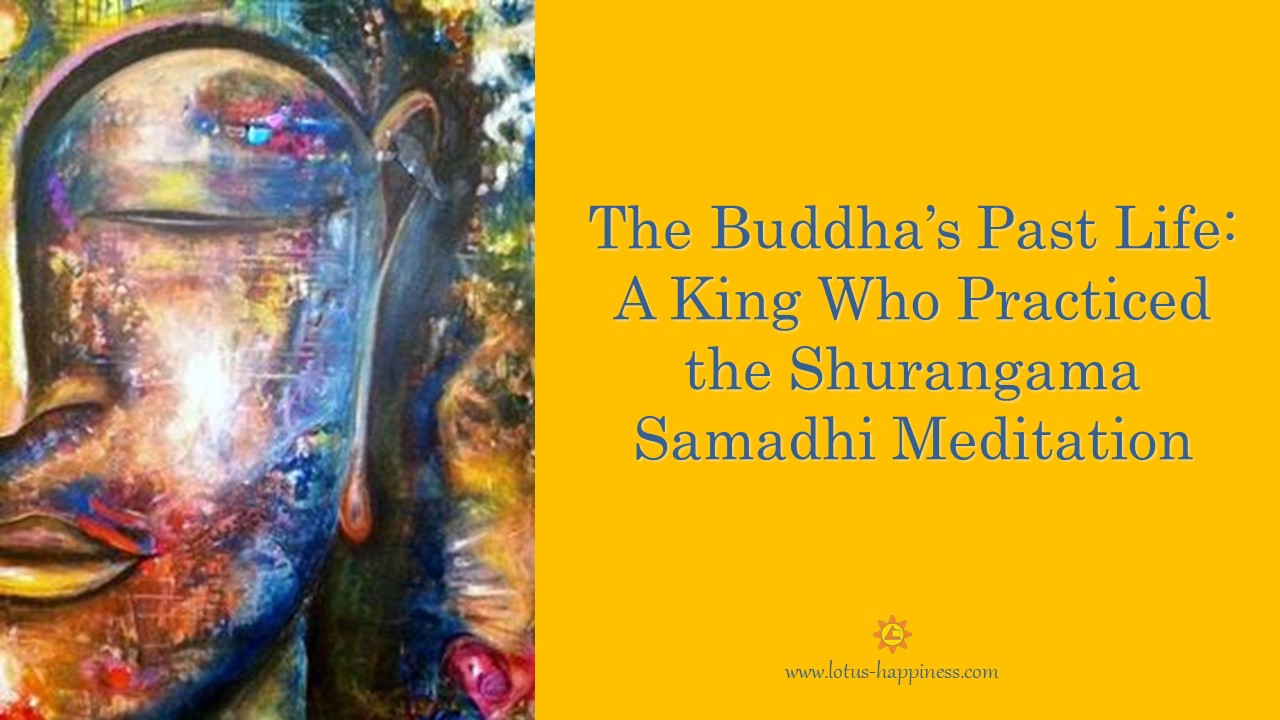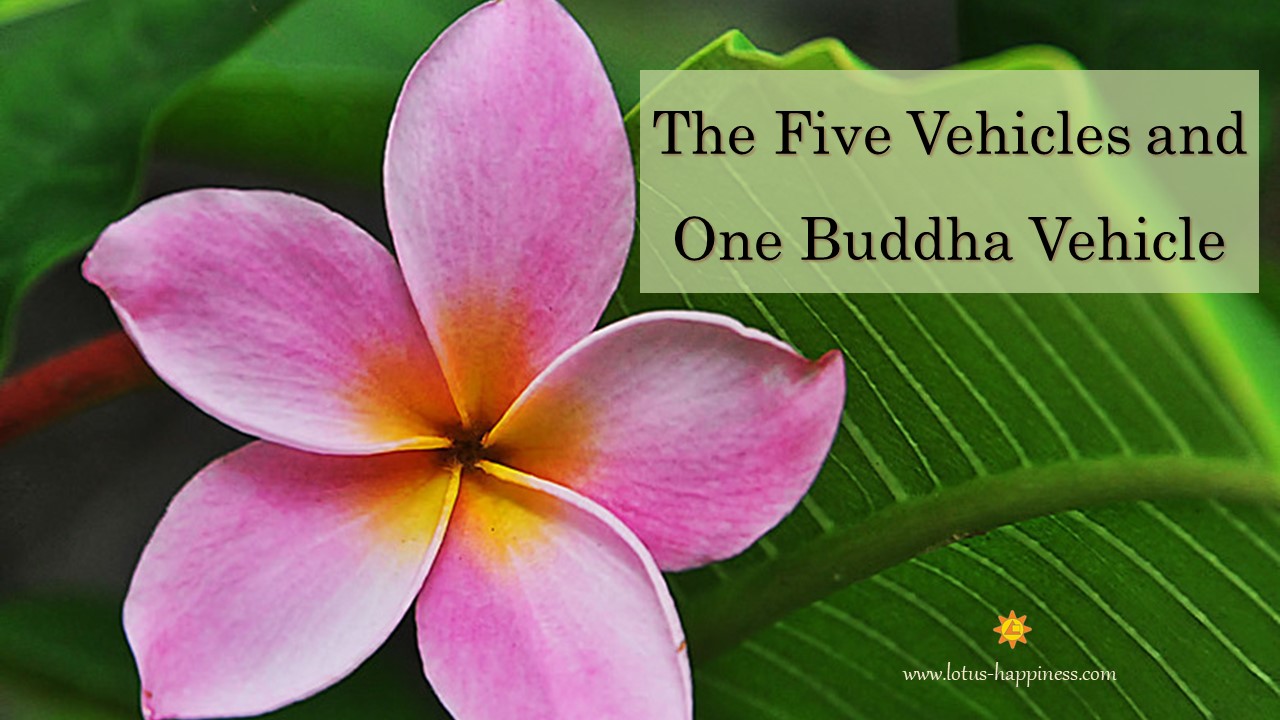10 Inspirational Quotes by Thubten Chodron
Thubten Chodron, born Cheryl Greene, is an American Tibetan Buddhist nun, author, and teacher. As the founder and abbess of Sravasti Abbey, the only Tibetan Buddhist training monastery for Western nuns and monks in the United States, Chodron plays an instrumental role in the reinstatement of the Bhikshuni ordination of women.
She is a student of the 14th Dalai Lama, Tsenzhab Serkong Rinpoche, Lama Thubten Yeshe, Thubten Zopa Rinpoche, and other Tibetan masters.
She has published many books about Buddhism meditation such as Buddhism: One Teacher, Many Traditions, Open Heart, Clear Mind: An Introduction to the Buddha’s Teachings, How to Free Your Mind: The Practice of Tara the Liberator etc.
Here are the 10 inspirational quotes by Thubten Chodron:
#1
“When Buddha spoke about suffering, he meant that we have unsatisfactory experiences. Even the happiness we have does not last forever, and that situation is unsatisfactory. The causes of our problems lie not in the external environment and those inhabiting it, but in our own mind. The disturbing attitudes and negative emotions, such as clinging attachment, anger, and ignorance are the real source of our unhappiness.”
#2
“At first, it’s hard for us to give to others, so we give a carrot from one hand to the other. Then we give away simple things, such as a jar of thumbtacks. Then, we grow a little bit and give away things that we hold more dear. Later, we can share our time or whatever else is more difficult for us to give. When we eventually become Tara, we will be able to give everything effortlessly and joyfully.”
#3
“Self-cherishing is a state of mind that is reflected in our actions. However, we can’t evaluate others’ degree of selfishness and altruism merely by their actions. For example, one person may flamboyantly give a thousand dollars to charity with the motivation to appear generous to her friends. Another person may humbly contribute five dollars to a charity with the sincere wish that others receive benefit. In fact, the latter person is the generous one, while the former is stingily seeking a good reputation.”
#4
“Since different explanations, symbolism, and practices benefit different people, the existence of a variety of spiritual paths enables each person to choose what suits him or her best.”
#5
“When you plant seeds in the garden, you don’t dig them up every day to see if they have sprouted yet. You simply water them and clear away the weeds; you know that the seeds will grow in time. Similarly, just do your daily practice and cultivate a kind heart. Abandon impatience and instead be content creating the causes for goodness; the results will come when they’re ready.”
#6
“Being a hypocrite does not work because the karmic results of our actions depend on our intention. Our motivation is the key that determines whether what we do is meaningful and beneficial.”
#7
“In order to cultivate an expansive motivation, such as the motivation to become a fully awakened Buddha, we will need to learn what a Buddha is, how it is possible for us to become a Buddha, what are the steps of the path for becoming a Buddha, and what benefits do we bring to ourselves and others by becoming a Buddha.
#8
“If we sincerely try to live an ethical life, even though we do not make as much money or have as nice a house as the next person, when we go to bed at night, we feel peaceful. Our mind is calm and free from self-doubt and self-loathing. That inner peace is worth more than anything else we could ever have.”
#9
“Observe your thoughts and learn to discern realistic and beneficial ones from unrealistic and harmful ones. Understand how your thoughts create your emotions. Give yourself some space to accept and appreciate yourself for who you are.”
#10
“This self-centeredness causes us so much misery. When we suffer from fear, anxiety, and worry, it is because we are paying too much attention to ourselves in a very unhealthy way.”

